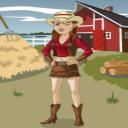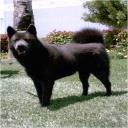Yahoo Answers is shutting down on May 4th, 2021 (Eastern Time) and beginning April 20th, 2021 (Eastern Time) the Yahoo Answers website will be in read-only mode. There will be no changes to other Yahoo properties or services, or your Yahoo account. You can find more information about the Yahoo Answers shutdown and how to download your data on this help page.
Trending News
Ridding a Farm of Parvo?
My grandparents are assisted in operating their large farm by their family of border collies. Recently, my grandmother lost two full litters, totaling thirteen puppies, in a period of a few weeks. She knows that parvo was what wiped them out. Now she's wanting to try to breed the dogs again, but is frightened that she will lose her pups. My grandpa suggested planning for pups in the winter, because of a rumor he heard that parvo is less likely to devastate in the winter. But we want to figure out how we can get rid of this awful virus - I'm afraid that the whole farm is contaminated, considering all of the animals and people tracking dirt from one place to another. What can we do to ensure that we don't lose another litter? I've read that spraying bleach on the ground can be helpful, but that's not especially practical to treat a yard as large as theirs!
Backyard breeding? Ignorance is fine, but don't be an idiot. You don't have to be a registered breeder to breed responsibly. Who knows how parvo came to the farm. Pure breeding have done nothing but ill for dogs. And if you're illiterate, reiteration won't help, but this is purposeful breeding. What exactly is "spay, spay, spaying" going to do to assist them?
I suppose you'd rather support puppy mills and purchase five or ten $500 dollar dogs. And it's not as if local shelters are full of herders, either.
Furthermore, waiting the suggested years and years to breed will leave us with..no dogs, period. We need an actual solution. Sorry if this is overly aggressive, but I find your comment highly offensive and uninformed.
Yes, we have a vet, but I don't think they've consulted him about the parvo issue yet. He mostly works with their herd of horses.
Thanks to all, especially the answers with some insight and awareness regarding farm life. It's too bad we can't pick up just any pooch from the pound and throw them on the farm, but that's reality. My grandparents are obviously older and the dogs are absolutely essential for the working of the farm - not only for the herd, but as protectors and assistants in other tasks. It's just not an option to not have dogs.
It's possible to wait another year or even three before trying to breed again, but in seven years time we could lose the generations-old bloodline. So it's also an emotional matter. These dogs are so important to our family.
We even lost the puppies that had already been vaccinated. It only left one lucky little boy. More and more it seems impossible to eradicate parvo from the entire farm - so perhaps we can look into options of moving the mother to another location to whelp and let the pups grow. Thanks to all; and again sorry if certain comments seem overly aggressiv
8 Answers
- 10 years agoFavorite Answer
It sounds to me like your grandparents are responsible farm people, not backyard breeders.
Many cattle and sheep breeders need herders to help with the work.
Considering it was Parvo they need to check with their local vet on procedures to follow in disinfecting the kennel and grounds. It's not possible to destroy all the virus that's in the dirt, but a Winter freeze can help. They should wait until AFTER Spring; Winter freeze first, but Spring is Parvo season so.... pups should come later on. Make sure the latest Parvo and other vaccinations are used as recommended.
Other resources can be nearby ranchers who have dealt with the same problem.
Sorry for their loss.
Source(s): Lost 2 of 3 remaining pups to a strong Parvo season. - 10 years ago
Do not start breeding again. It is way too soon. Bleach works in the house but outdoors can not be error proof. Parvo can live deep in the ground for up to 7 years. Since it is the nature of a dog to dig and sniff of everything, it is possible to still catch Parvo even in the winter. Mothers milk will provide immunity as long as they are nursing. Weaning time is most dangerous, so immunizations are extremely important. I gave mine every 2 weeks, from 6 weeks of age to 16 weeks. Most people give immunizations every 3 weeks but there is a short period the pup is without protection doing it that way as the antibodies in mothers milk attacks and kills the virus in the vaccine, making it useless. If you are just set on it, I would pen up an area for the mother to whelp the pups after thoroughly bleaching and keep them in there until weaned and all shots given or being on a farm, there is probably a barn the pups can be raised in that does not have parvo in the ground? But remember, nothing is 100% sure when Parvo is involved. It is a very sad and extremely dangerous disease.
- Horse LoverLv 710 years ago
You can spray the entire grounds with a 15W to 1B solution. But then you would have to keep the animals out of it. The only other thing would be to just wait a year and let it die out.
People on here always quick to judge. Most of them don't know that farmers are often breed their own working dogs.
Moving the mother and raising the pups in another location until they are older and fully vaccinated is the best bet for you grandparents.
I wish them all the best with this and hope they are successful.
- Raw Rescue PupsLv 610 years ago
ADD... I do in fact know about farm life, as I grew up on a farm with some working dogs, too. Breeding multiple litters of puppies without sufficient knowledge of an extremely common puppy illness like parvo is irresponsible... I get the old-school grandparents thing; I have old-school farmer grandparents, myself. That doesn't change the fact that breeding in this situation is not ethical.
- How do you think about the answers? You can sign in to vote the answer.
- MoondogLv 710 years ago
The only thing that will kill the Parvovirus is bleach. I have no idea how they would clean up a large area of land.
Do they have a vet they can ask for advice?
- 10 years ago
Bleach and sunlight are the only things that kills the virus. It will take several years to be rid of the virus.
So, no, breeding for the winter will not work. Please try to get your GPs to get their dogs spayed/neutered. It would be best all around if they aren't breeding their dogs without any knowledge of proper breeding.
- Anonymous10 years ago
good night go to your vet and he could give you disinfectant that safe and effective for your farm animals because colorox could be a bit harsh on some animal lungs if not use right ok bye enjoy your night
- Anonymous10 years ago
Bleach is the only thing I know of that actually will kill the parvovirus. There may be some industrial strength cleaners out there, but I wouldn't know where you would find them.







